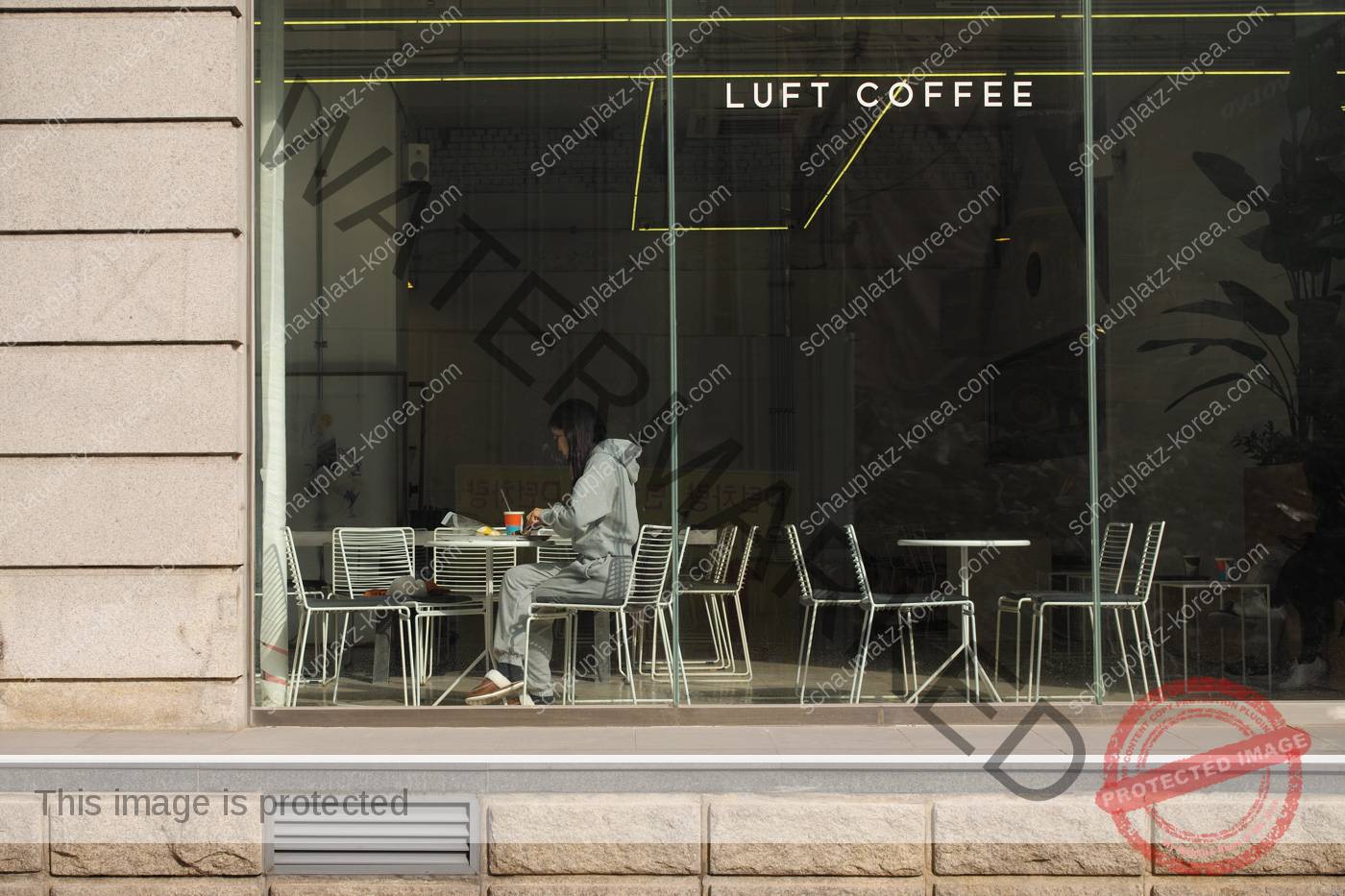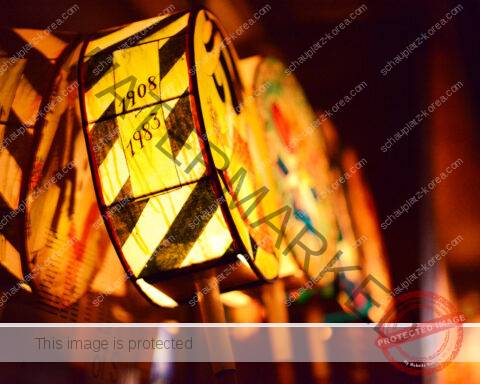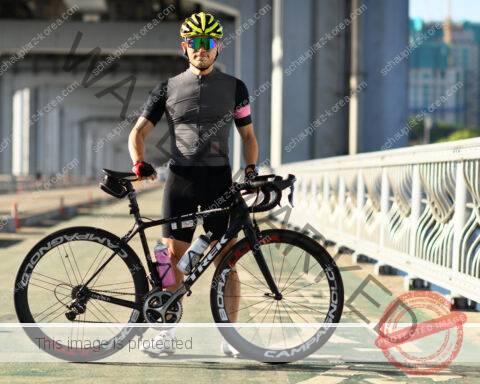The world is becoming more internationalized. This is also reflected in the languages. We also know this from Germany, Austria, or Switzerland, where we constantly encounter sentences, sentence fragments, or words from English or other languages in the street scene. Everyone wants to be as “woke” as possible. Because you have to pay attention to your “contents”. This does not always go off without a hitch; according to a newspaper report from a town in southern Germany, “Damen-Tischirts” were being sold to astonished customers, while in another place used “hendis” were on offer. The cell phone, if it were spelled like that, is not really an English expression, by the way, and hardly any Englishman or American would know what to do with this word. This expression is only used in German-speaking countries. It should be added that in Switzerland “Handy” is also the name of a well-known dishwashing detergent. And hardly any German-speaking person would suspect that the “cookies” that people like to eat with their coffee have an English-speaking origin. That’s because when German manufacturer Hans Bahlsen was looking for a word for his new dried cookies in 1911, he simply changed the English “cakes” to “Keks.”
Sometimes this linguistic transfer is very apt or even funny, but sometimes it goes quite wrong.
Michael Menke
In Korea, too, one often encounters English-language expressions, especially for technical innovations. But also fashion, leisure, or food are often described with expressions from other languages. Mostly this is done in English or French. Strangely enough, however, the so exotic language German appears more and more often. Changes in meaning or simply linguistic misunderstandings cannot be ruled out. One notices, however, that those who brought the respective expression into play and use it, have thought about meaning and usage. Sometimes this linguistic transfer is very apt or even funny, but sometimes it goes quite wrong…
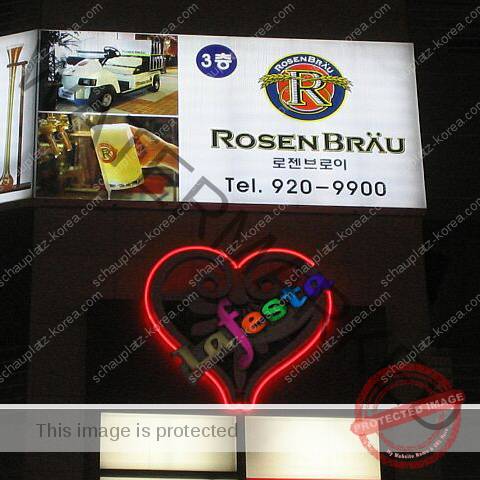
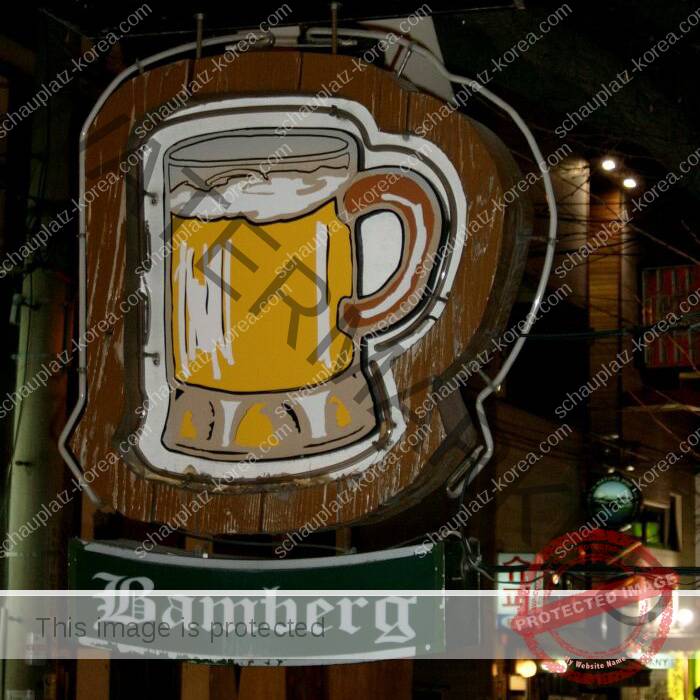
German-language terms appear relatively often in connection with beer and food. Even the Korean word for the pub, “Hof,” appears to have German origins, and then often appears in connection with city names or “romantic” sounding terms.
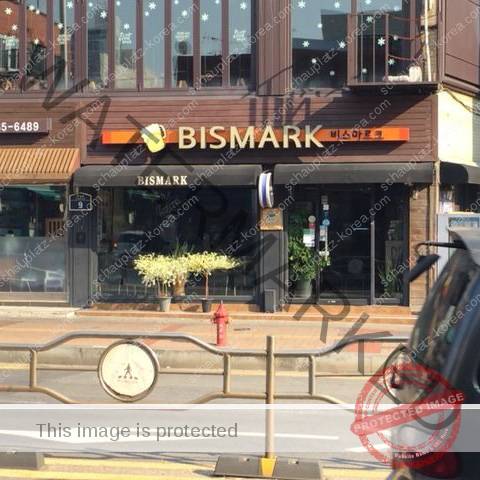
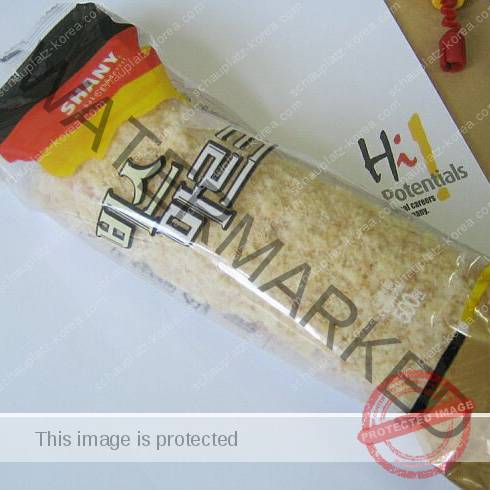
Beer is considered something typically German in Korea. But why this pub bears the name “Bismark” is not so easy to understand. Was the old Chancellor of the Reich a friend of barley juice? In the German-speaking world, one would certainly first think of the “Bismarck Herring”. Even if the spelling is not quite correct, but still, Bismar(c)k is not forgotten in Korea, and also appears from time to time as a waffle, shown here in Korean script.
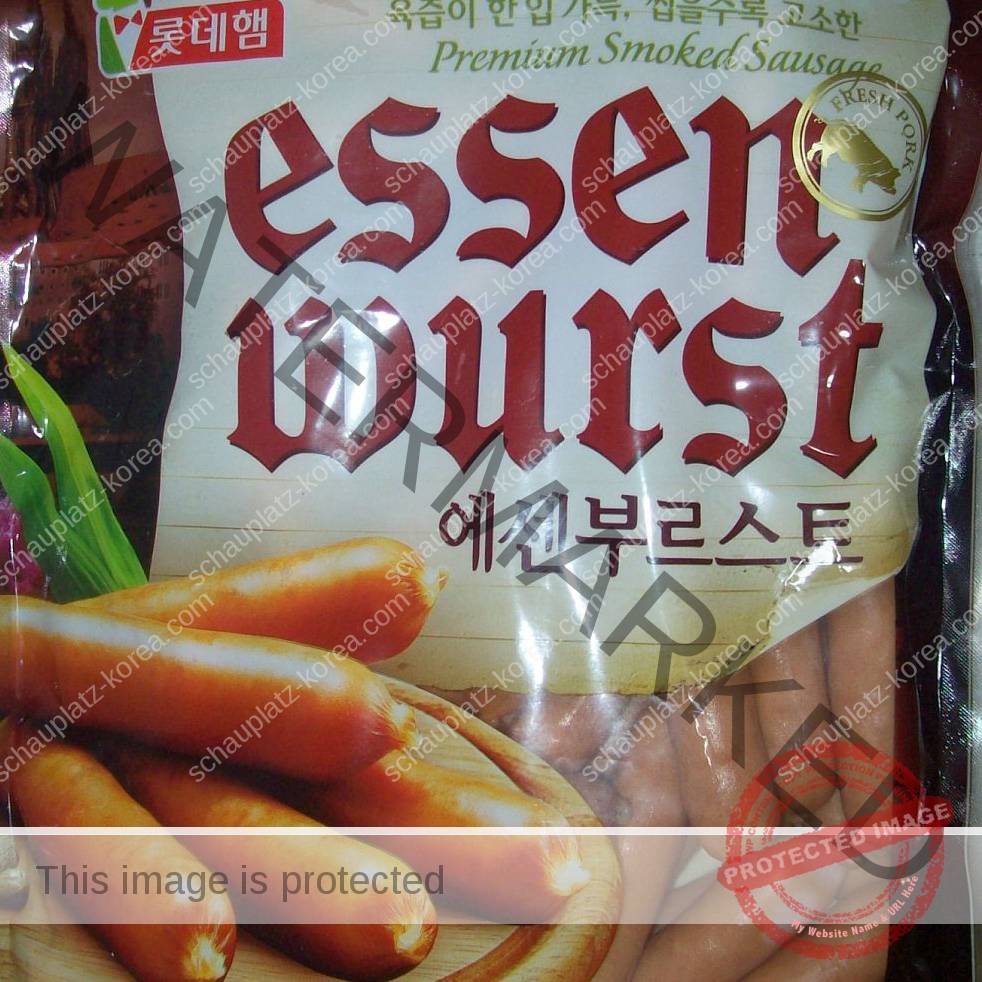
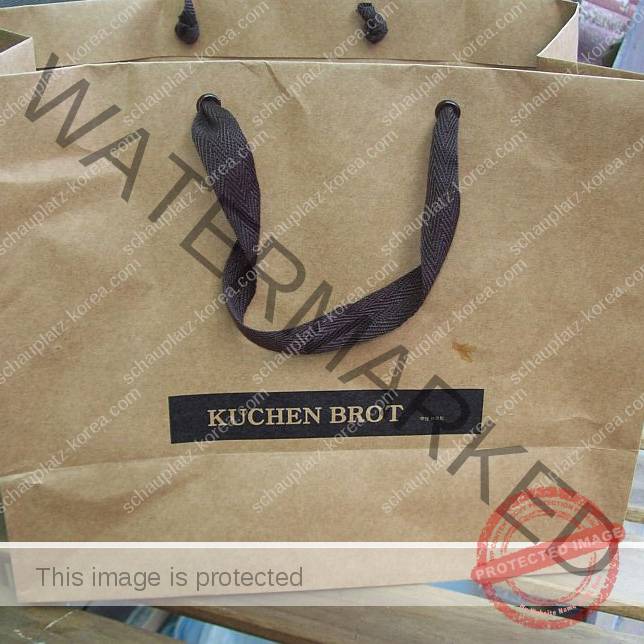
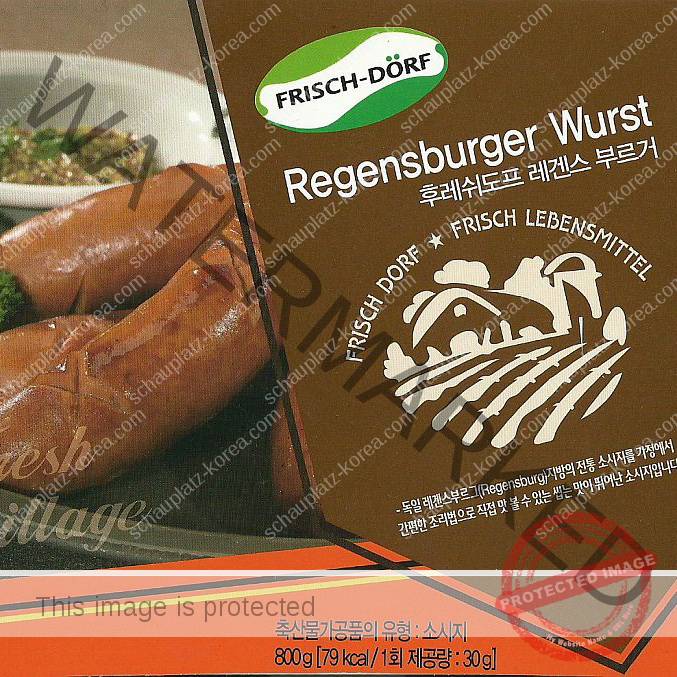
German-language terms are also often used for food, and especially for foodstuffs that are thought to be of Teutonic origin. Regensburg, after all a large city with 150,000 inhabitants, is degraded here however to a “Frisch-Dörf”, with which again the problems of the correct spelling are continued.

Also with the most important food, the water, we do not know unfortunately exactly whether the “Reinheit” was in the aim, or the awareness level of the large river (then however the “h” is missing) should promote the sales. But whether the Rhine water is really so pure?
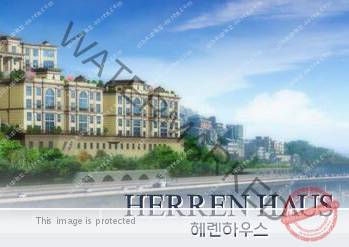
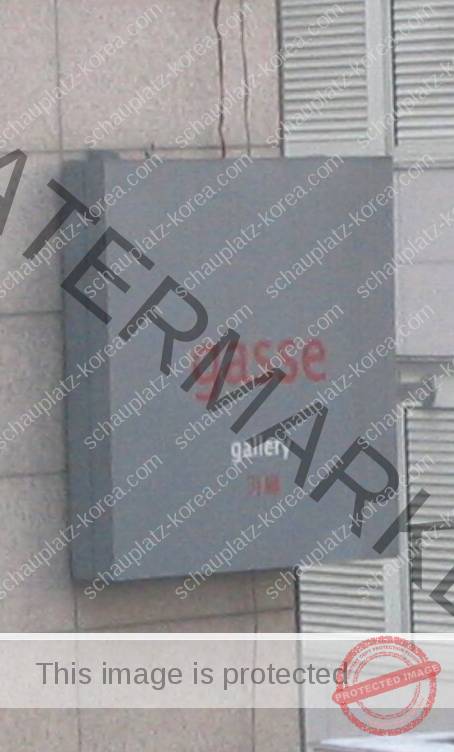
Another large field, which is relatively often German-speaking occupied, is the area of houses and apartments. From the high-rise housing estate called “dream” to the “mansion”, here one writes everywhere gladly German. And even the South German-Austrian word “Gasse” appears, but behind it is an art gallery.
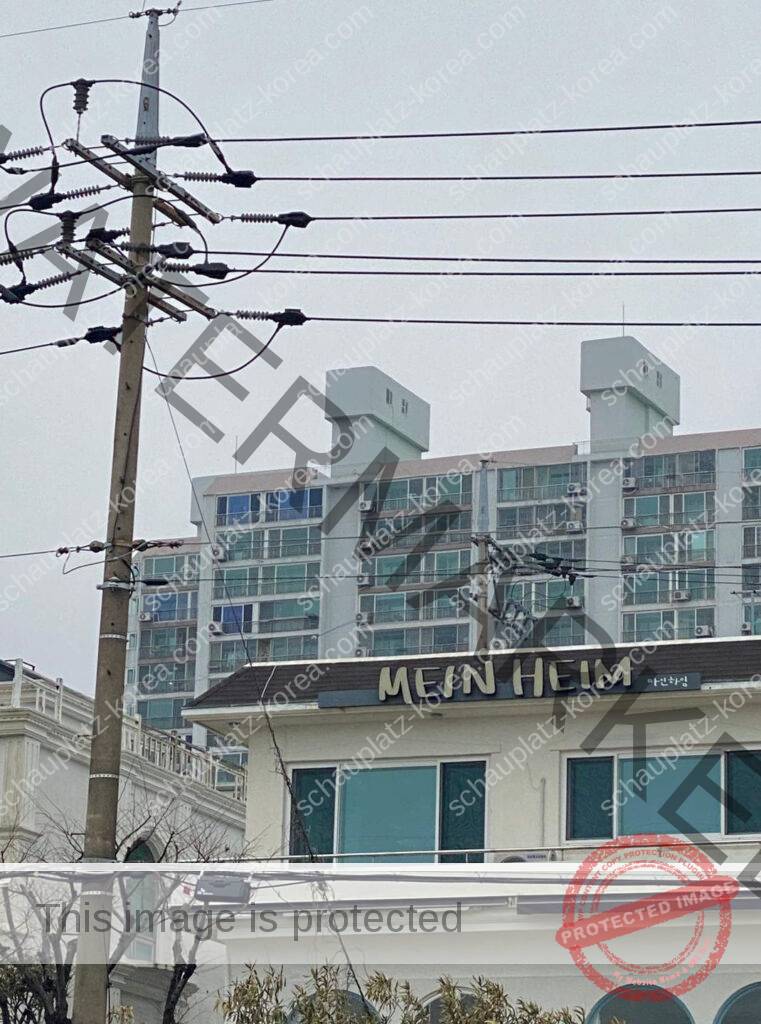
And even if one’s own dwelling is only in the shadow of a larger settlement, it is at least “my home”.
The third area I would like to introduce here is the education of children, which in Korea is often titled with German words. Kindergarten”, this beneficial invention of Mr. Froebel from 1840, has already successfully penetrated the English-speaking world. And so this word was also known in Korea for quite some time. However, one has then apparently dealt more intensively with these educational methods, and thus also provided individual parts of the child pedagogy with German terms.
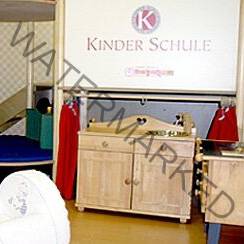
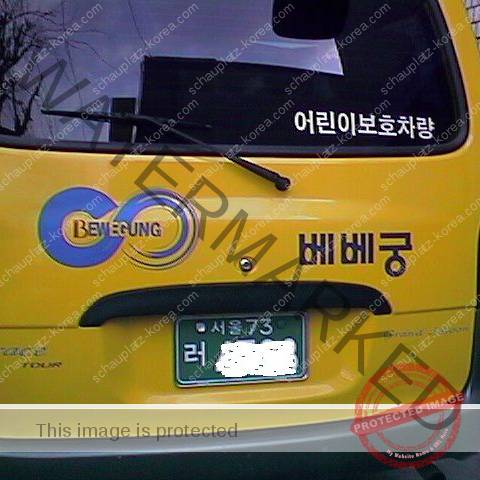
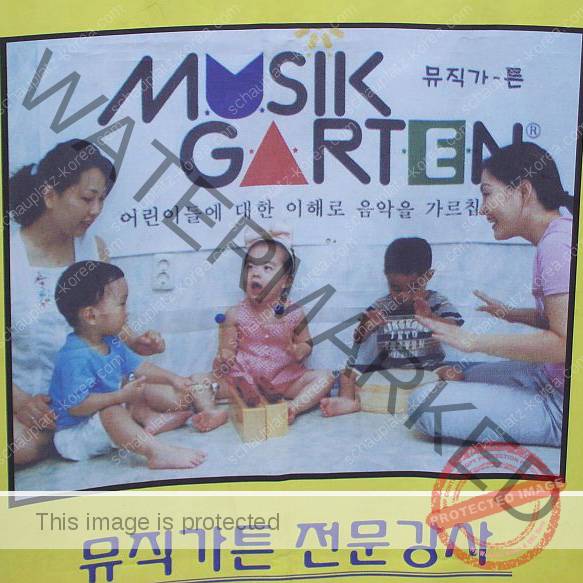
In the children’s school there is not only playing, but also learning, and that “movement” is good for the offspring has been known at least since gymnastics teacher Jahn.
Finally, let’s move on to emotions, which have been well-represented by German and Austrian writers and musicians at least since the Romantic era. And Koreans are particularly fond of “love. Not only restaurants or bars are called that, but also furniture serves this great feeling.
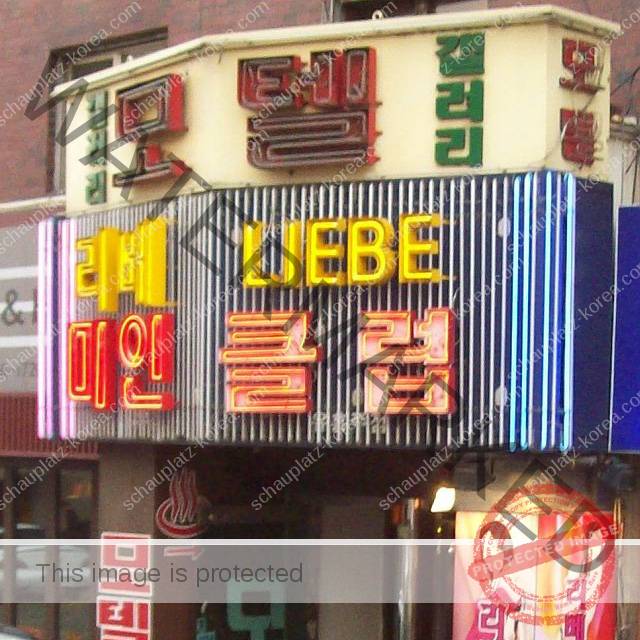
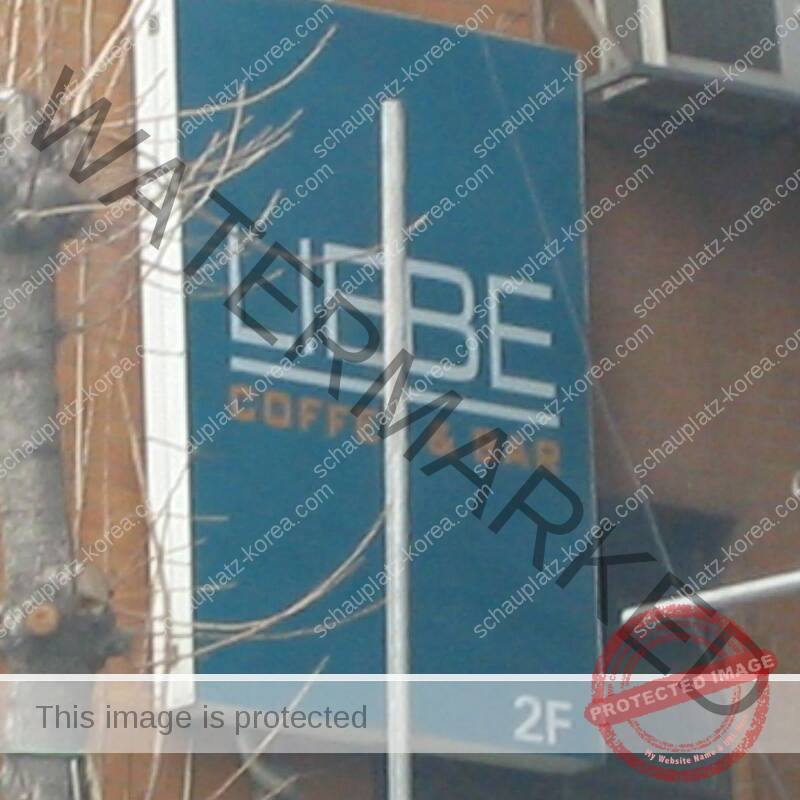
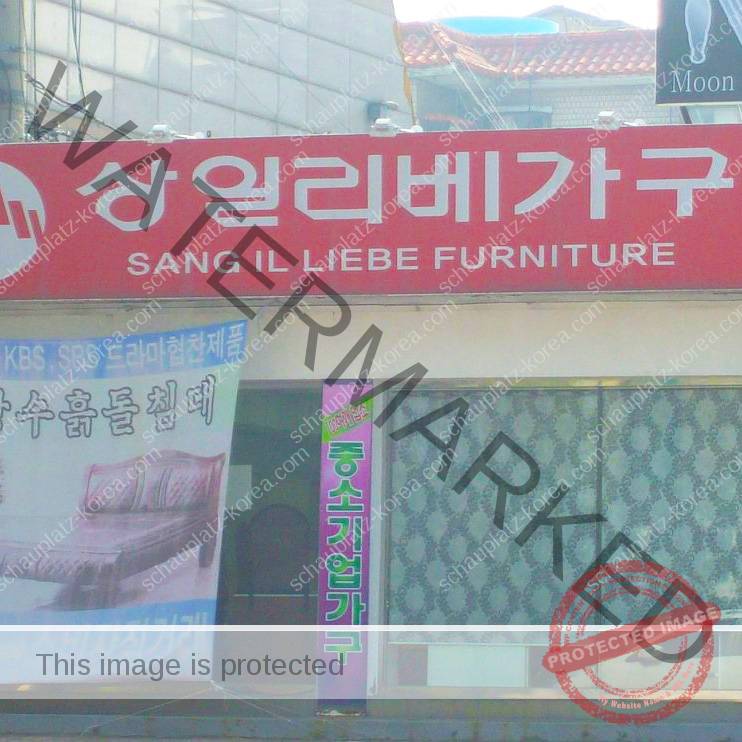
It only becomes sad when one has then left again, then one can only say…

All photos by Michael Menke

